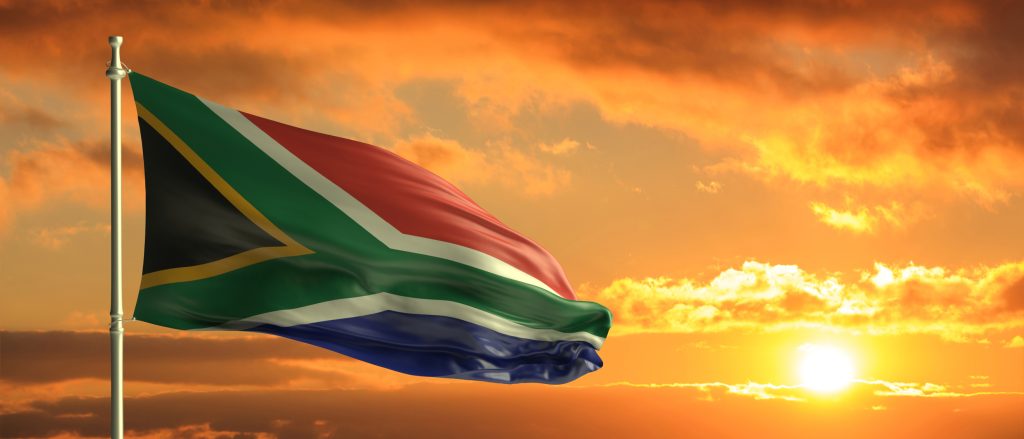
South Africa’s government has touched off a storm after it moved to classify native Afrikaans as a “foreign language.” For clarity’s sake, here is a hypothesis: this move would be similar to the US secretary of education suddenly waking up and classifying English as a foreign language in America’s school curriculum.
Afrikaans is a locally constructed dialect of the original European Dutch language. White colonial settlers of Dutch, Germanic, and French origins constructed Afrikaans on landing in South Africa in the 1600s. Their descendants number four million today in South Africa. Black South Africans make up roughly 47 million out of the nation’s 60-million-strong population.
“Afrikaans has a sensitively contested history as the language of Black enslavement and racist apartheid law enforcement in South Africa. For Black South Africans, Afrikaans is a scene of a colonial crime,” says Kudakwashe Magezi, a sociologist and immigration rights activist in South Africa.
“For example, on 16 June 1976, thousands of Black South African kids in Soweto township, South Africa, marched against the colonial government’s initiative to impose Afrikaans as the exclusive classroom language of instruction and force Black students to recite the Lord’s Prayer. Between 400 to 700 ‘rebellious’ Black students were murdered by White Afrikaans policemen in a day.”
Language of Instruction
Since the end of racist apartheid rule in South Africa, Afrikaans has been one of the country’s eight official languages and is the third most spoken language in the country. But as Black South African postcolonial nationalism takes root, there have been gradual efforts to dismantle the use of Afrikaans as part of a mission to revive marginalized Black South African languages.
So, in October 2020, Mr. Blade Nzimande, the South African minister of education, proposed an education bill that seeks to force South Africa’s universities to designate more studies in previously marginalized Black South African languages and address the linguistic injustices of European colonialism in the country. Afrikaans was quickly designated a ‘foreign’ European language whose use in South Africa’s universities’ faculties must be discouraged.
Outcry
Leaders of the White Afrikaans-speaking minority community in South Africa, who are essentially descendants of Dutch colonists, have hauled South Africa’s government before courts and the UN Educational, Scientific, and Cultural Organization over the attempt to reclassify Afrikaans as a foreign language.
“This is disgusting reverse racism,” says Leon Schreiber, a White Afrikaans-speaking lawmaker of Dutch ethnicity. Mr. Schreiber accuses the Black postcolonial South African government of bigotry and hatred of Afrikaans culture and language.
“White Afrikaans-speaking students are restricted to only 5% of places in medical schools, they are effectively stood down in army, post office, police, banking jobs in favor of Black interns. The South Africa education minister openly hates the Afrikaans language,” says Mr. Schreiber.
The Afrikaans-speaking community in South Africa is asking why the language is suddenly being classified as foreign in the country while English, another colonial European language, remains untouched.
“This is the height of myopic discrimination. Afrikaans is invented in South Africa, not in Europe in Holland,” fumes Alana Bailey of Afriforum, a White foundation that works to advance Afrikaans speakers’ language, education, and community rights in South Africa. In May 2021, Afriforum sued the University of South Africa for discrimination because it had removed Afrikaans as the language of instruction at the university. Afriforum won the case in September, when the South Africa Supreme Court declared that the designation of English as the only official language of instruction at the University of South Africa was unconstitutional. The court further affirmed that students of all ethnicities in South Africa have a right to be instructed in their mother languages rather than being subjected to English.
“It was a glorious judgment,” says Bailey. “The racist attempt to marginalize Afrikaans language in postcolonial South Africa is simply that—racist and shameful.”
Reverse Racism
Supporters insist that Afrikaans, an off-shoot of the European Dutch language, has roots (similes, verbs, accents, cues) constructed in South Africa over 400 years.
“This reclassification of the Afrikaans language as foreign is a pattern of the reverse racism currently endured by White Afrikaans South Africa citizens,” adds Bailey.
However, Mr. Nzimande insists that he harbors no prejudice against the Afrikaans language: “The White right wing is over-occupied with the supremacy of Afrikaans language only and thus ignoring the nine other languages in postcolonial South Africa. We are now a diverse, democratic South Africa, and Afrikaans has no special lead over other languages.”







